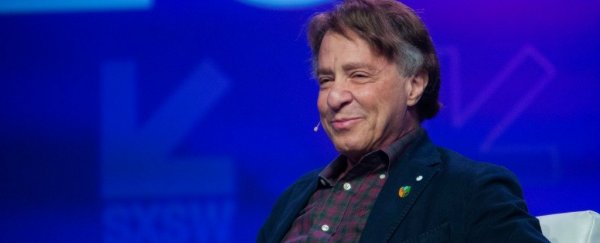Motherboard has called Ray Kurzweil "a prophet of both techno-doom and techno-salvation."
With a little wiggle room given to the timelines the author, inventor, computer scientist, futurist, and director of engineering at Google provides, a full 86 percent of his predictions - including the fall of the Soviet Union, the growth of the internet, and the ability of computers to beat humans at chess - have come to fruition.
Kurzweil continues to share his visions for the future, and his latest prediction was made at the most recent SXSW Conference, where he claimed that the Singularity - the moment when technology becomes smarter than humans - will happen by 2045.
Sixteen years prior to that, it will be just as smart as us. As he told Futurism, "2029 is the consistent date I have predicted for when an AI will pass a valid Turing test and therefore achieve human levels of intelligence."
Kurzweil's vision of the future doesn't stop at the Singularity.
He has also predicted how technologies, such as nanobots and brain-to-computer interfaces like Elon Musk's Neuralink or Bryan Johnson's Kernel, will affect our bodies, leading to a possible future in which both our brains and our entire beings are mechanised.
This process could start with science fiction-level leaps in virtual reality (VR) technology. He predicts VR will advance so much that physical workplaces will become a thing of the past. Within a few decades, our commutes could just become a matter of strapping on a headset.
As Inverse points out, this paradigm shift could have some interesting consequences. Without the need for people to live close to work, we could see unprecedented levels of deurbanisation.
People will no longer need to flock to large cities for work or be tethered to a specific location.
Inverse suggests that this decentralisation may decrease the opportunity for terrorist attacks. Blockchain technology will continue to bolster decentralisation as well.
According to Kurzweil, technology will not only enable us to rethink the modern workplace, it will also give us the ability to replace our biology with more substantial hardware.
He predicts that by the early 2030s, we will be able to copy human consciousness onto an electronic medium.
As Inverse puts it, "That means no more flesh, blood, or bones - just a scan of your brain on a machine - and [it] will enable humans to take any form, from a box to a bird."
The even bigger implication of this ability is that humans will no longer die. As our brains will no longer be reliant on fragile biology, we could (theoretically) live forever.
Not all of Kurzweil's predictions are so drastic, and some seem even more likely to come to fruition.
For example, his prediction of truly ubiquitous WiFi is well on its way to becoming reality, especially with Elon Musk's announcement that he hopes to beam the internet across the globe from space, and his belief that many of the diseases currently plaguing humanity will be eradicated by the 2020s also seems remarkably possible given ever more frequent medical breakthroughs.
Kurzweil envisions a future that is exciting, daunting, and a little bit terrifying all at once. Time will tell if his impressive batting average will improve or if the future has other plans for humanity.
This article was originally published by Futurism. Read the original article.
